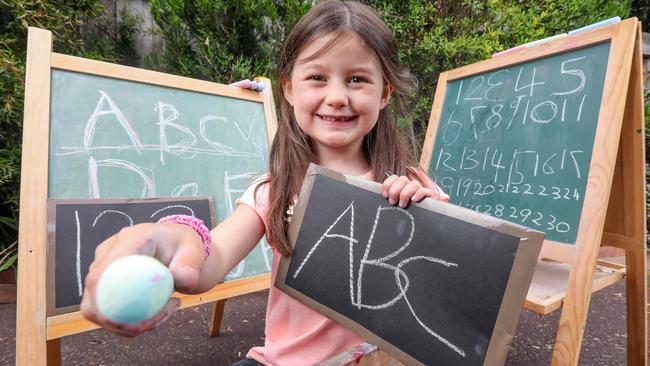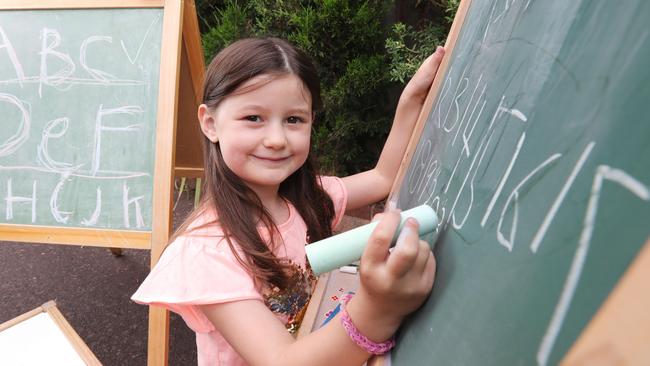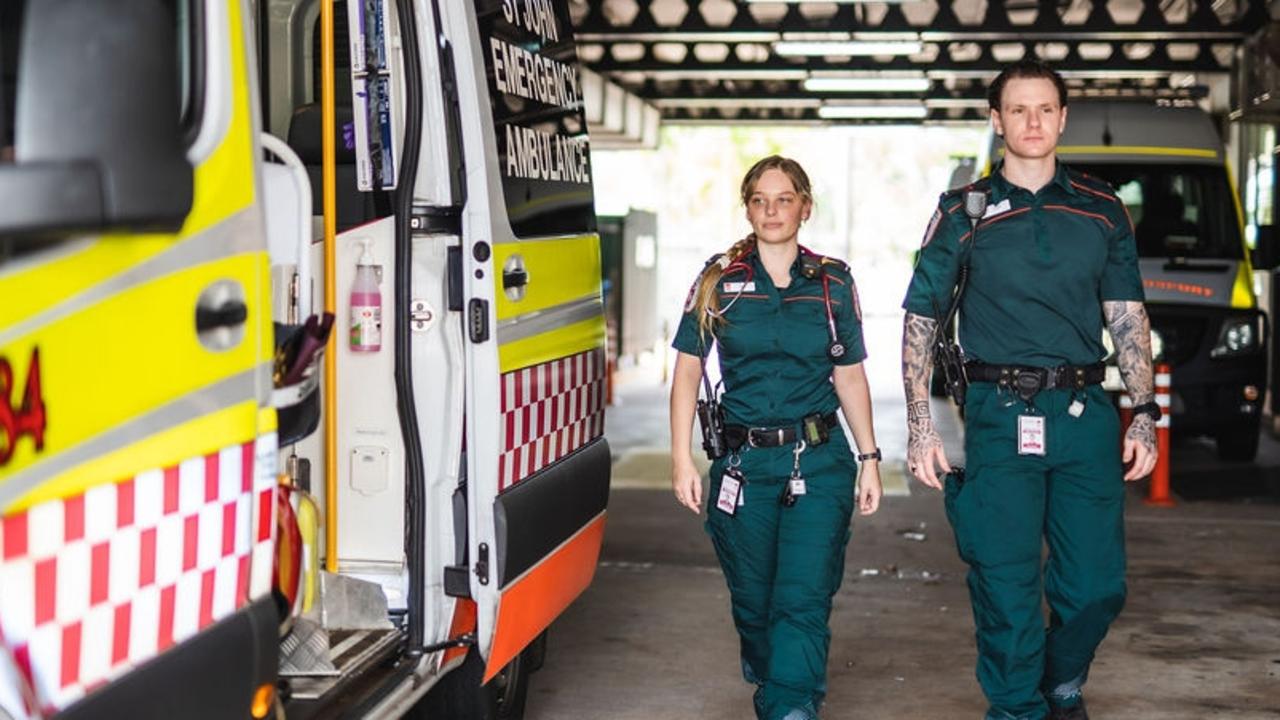Why education expert wants chalk and slates back in schools
A leading educational expert has pointed out a glaring flaw with what has become a classroom norm, but says this old-school skill could be the answer.

Victoria
Don't miss out on the headlines from Victoria. Followed categories will be added to My News.
Primary school kids should ditch digital and return to using chalk and slates, a leading educational expert says.
Central Queensland University academic Dr Ragnar Purje said the old-school approach was “profoundly important” for developing the brain, fine and gross motor skills, and the intellectual ability to construct a story.
Dr Purje, who is also a primary school classroom teacher with 40 years’ experience, said writing on screens could not replace the complex skill of handwriting with chalk.
“Tapping, swiping a screen, or using the ‘pointing’ finger on a screen is not handwriting,” he said.
“The research dealing with handwriting and compositional narrative writing development is unambiguous: handwriting and narrative writing is not only complex, it requires desire, discipline, dedication, determination, perseverance and resilience.”
Dr Purje said using chalk encouraged a “tripod grip” with thumb and pointer finger, which helped shape neurological, neuromuscular, gross and fine motor skill pathways.

“Research has also linked poor orthographic-motor integration, or hand-brain co-ordination, with an inability to compose a well-structured and creative written narrative,” he said.
“That’s because the student is only focusing on letter formation, they haven’t developed handwriting automaticity so they can instead develop the narrative.”
Dr Purje also highlighted the environmental sustainability of chalk, and the frustration of using the popular alternative of whiteboards and markers.
“The water-based felt pens often dry out, and you need cloth and liquid to erase, so what should be an easy process becomes time consuming and unnecessarily convoluted,” he said.
“Chalk never dries out, you can write with it even as it breaks, and producing chalk does not use tonnes of plastics or megalitres of chemical liquids.
“Schools worldwide are spending billions on plastic whiteboard markers destined for landfill, and on technology like tablets that is obsolete in a few years. The financial and environmental savings of chalk are self-evident.”
While chalk and slate boards were not available in most Australian primary schools, Dr Purje said parents should encourage their children to practise writing with chalk in their preschool years.
More Coverage
Originally published as Why education expert wants chalk and slates back in schools





